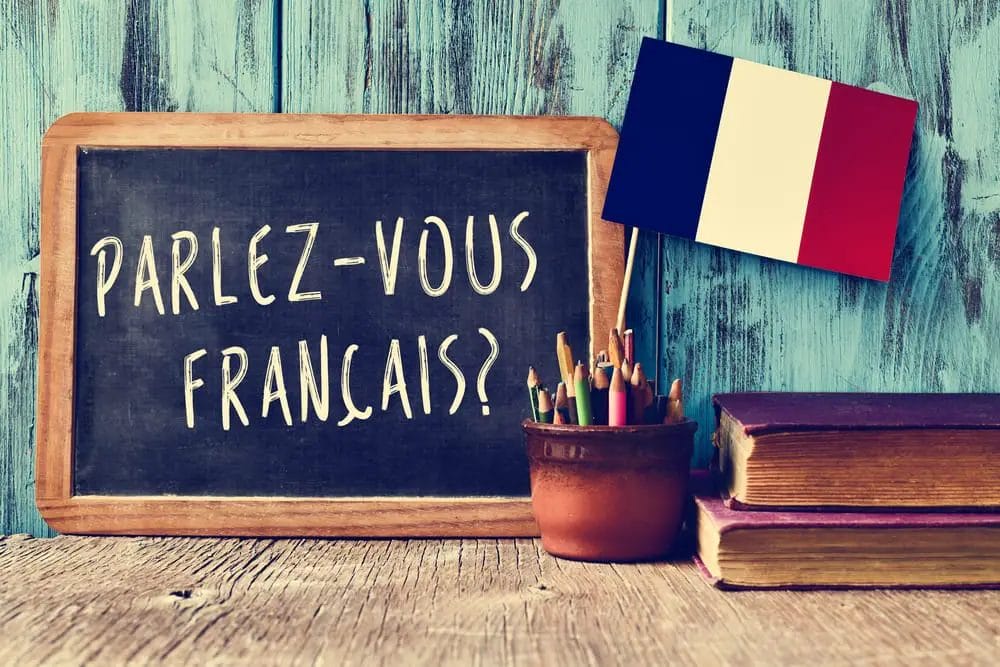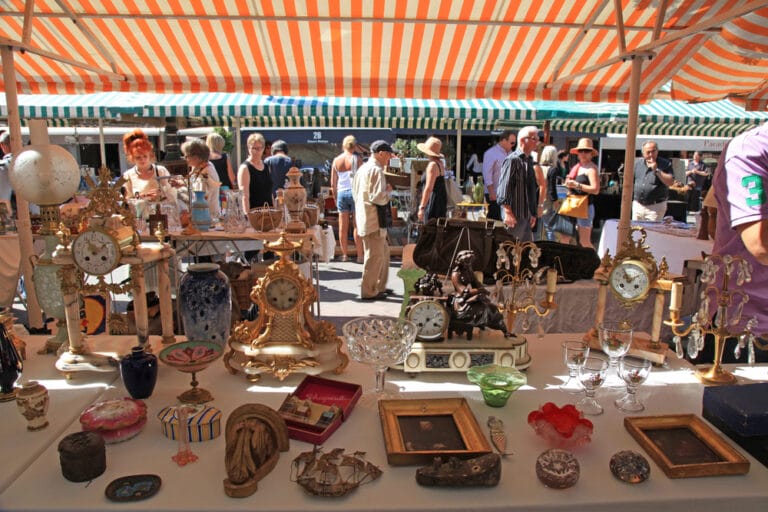How to Say Good Morning in French: 20+ Ways
Bonjour! As a traveler, I have always been fascinated by the intricacies of different cultures and languages.
Today, I want to delve into the world of French greetings, specifically focusing on how to say good morning in French.
While it may seem like a simple phrase, learning how to greet someone in their native language can have a profound impact on your interactions and understanding of their culture when you are traveling to France.
Key Takeaways
- Learning how to say good morning in French is important for cultural understanding and communication.
- Greetings are highly valued in French culture and can vary depending on the situation and relationship.
- Basic French phrases for greeting someone in the morning include “bonjour” and “salut”.
- Pronunciation is key when saying good morning in French, with emphasis on the “j” sound in “bonjour”.
- Adding a personal touch by using names and titles can enhance French greetings.

Why Learn How to Say Good Morning in French?
Learning a new language is not only intellectually stimulating but also opens up doors for personal growth and cultural understanding.
By expanding our linguistic horizons, we gain access to new perspectives and ways of thinking. Also being able to communicate with people from different backgrounds fosters empathy and connection.
In the case of French greetings, they hold particular importance due to their significance in French culture.
Greetings are seen as an essential part of social interaction in France, reflecting politeness and respect for others. By mastering the art of saying good morning in French, you not only show your willingness to engage with the local customs but also make a positive impression on those you meet.
The Importance of Greetings in French Culture
To truly appreciate why learning how to say good morning in French is important, it’s crucial to understand the role that greetings play within French society as a whole. France is known for its rich cultural heritage that values tradition and etiquette.
In France, greetings are considered more than just polite gestures; they are seen as an integral part of daily life that sets the tone for social interactions throughout the day.
Whether it’s greeting colleagues at work or exchanging pleasantries with neighbours on your way out each morning, saying bonjour (good morning) is expected as a signifier of respect.
Basic French Phrases for Greeting Someone in the Morning
Now that we understand why learning how to say good morning in French is important let’s dive into some basic phrases that will help you greet someone in the morning. Here are a few common French phrases to get you started:
1. Bonjour – Good morning
2. Salut – Hi/Hello (informal)
3. Coucou – Hey/Hi (informal, used mostly among friends and family)
4. Bonne journée – Have a good day
5. Comment ça va? – How are you?
Pronunciation is key when it comes to speaking French, so let’s take a moment to go over some pronunciation tips for these phrases.
How to Pronounce Good Morning in French
To pronounce “bonjour” correctly, break it down into two syllables: “bon” and “jour.” The first syllable, “bon,” is pronounced like the English word “bone.” The second syllable, “jour,” sounds like the English word “zhur,” with a soft ‘j’ sound similar to the ‘s’ in measure.
Listen Here! ⬇️ Bonjour
Remember that French pronunciation often differs from English pronunciation, so don’t be discouraged if it takes some practice to get it right! Listening to native speakers or using language learning apps can greatly assist in improving your pronunciation skills.
You can learn more from this video.
Formal vs. Informal Greetings in French
In France, there is a distinction between formal and informal greetings depending on the relationship between individuals or the context of the situation.
Understanding when and how to use each type of greeting is essential for navigating social interactions smoothly.
Formal greetings are typically used when addressing people you don’t know well or those who hold higher positions than you do professionally or socially.
In such cases, using bonjour followed by Monsieur (Mr.) or Madame (Mrs./Ms.) is appropriate.
Informal greetings are more relaxed and can be used among friends, family members, or colleagues with whom you have established familiarity and rapport.
In these situations, salut or Coucou can be used to greet someone in the morning.
How to Use Bonjour in Different Situations
While bonjour is the most common way to say good morning in French, it’s important to know when and where it is appropriate to use this greeting.
In France, bonjour is expected as a polite form of address when entering a shop, restaurant, or any public space.
It sets the tone for a respectful interaction and shows that you acknowledge the presence of others.
In addition to bonjour, there are other phrases you can use depending on the context.
For example, if you’re visiting someone’s home in the morning, you can say “bonne matinée” (good morning) or “bon réveil” (good wake-up). These variations add a personal touch and show that you are aware of the time of day.

Adding a Personal Touch: Using Names and Titles in French Greetings
To further enhance your French greetings and make them more personalized, incorporating names or titles into your interactions can go a long way.
When addressing someone directly using their name or title followed by bonjour adds an extra level of respect and consideration.
For instance, if you’re greeting your colleague Pierre in the morning, saying “Bonjour Pierre” instead of just “Bonjour” shows that you value him as an individual.
Similarly, if you’re meeting Madame Dupont for the first time at a social event in the morning, saying “Bonjour Madame Dupont” demonstrates politeness and attentiveness.
Regional Variations in French Greetings
France is known for its diverse regional cultures with unique customs and dialects. Consequently, greetings may vary across different regions within France itself.
For example:
– In southern France (Provence), people often greet each other with “Bòn diéu!” which means “Good God!”
– In Brittany (northwestern France), people may say “Demat” instead of bonjour.
– In the Alsace region (eastern France), you might hear “Griass Di” as a morning greeting, which is a variation of the German greeting “Guten Tag.”
These regional variations add depth and richness to French greetings, showcasing the cultural diversity within the country.
How to Say Good Morning in French Slang
Just like any language, French has its fair share of slang. While it’s important to be mindful of using slang appropriately and in appropriate contexts, knowing some common slang phrases for saying good morning can help you connect with younger generations or friends in a more casual setting. Here are a few examples:
1. Salut les potes! – Hi buddies!
2. Yo! – Hey!
3. Ça roule? – What’s up?
4. Bon mat’! – Shortened version of bon matin (good morning)
When using slang phrases, pay attention to your audience and ensure that they are comfortable with informal language.
Greeting Someone in French at Different Times of the Day
While saying good morning is essential when starting your day, there are other specific phrases for greeting someone at different times throughout the day in French:
1. Bon après-midi – Good afternoon
2. Bonsoir – Good evening
3. Bonne nuit – Good night
Pronunciation plays a crucial role here as well since each phrase has its unique pronunciation rules.
How to Respond to Good Morning in French
When someone greets you with bonjour or any other form of good morning greeting, it’s customary to respond politely and reciprocate their well wishes.
Here are some common responses:
1. Bonjour / Salut / Coucou
2. Ça va bien merci et toi? – I’m doing well thank you, and you?
3. Très bien, merci – Very well, thank you
Remember to match the level of formality in your response based on the context and relationship with the person greeting you.
Common Mistakes to Avoid When Saying Good Morning in French
Learning a new language can be challenging, and it’s natural to make mistakes along the way. However, being aware of common errors can help you avoid them and improve your overall pronunciation. Here are a few mistakes to watch out for when saying good morning in French:
1. Mispronouncing “bonjour” – Remember to emphasize the soft ‘j’ sound in “jour.”
2. Forgetting formalities – When addressing someone formally, always use Monsieur or Madame followed by bonjour.
3. Overusing slang – While slang can be fun and casual, it’s important not to overuse it or use it in inappropriate situations.
By being mindful of these common mistakes, you’ll be well on your way to mastering French greetings.
How to Practice Saying Good Morning in French
Practice makes perfect! Here are some tips for practicing your French greetings:
1. Find a language exchange partner or join a conversation group where you can practice speaking with native speakers.
2. Use language learning apps that provide pronunciation exercises and interactive lessons.
3. Watch movies or listen to music in French; this will expose you to different accents and help improve your listening skills.
Additionally, there are numerous online resources available that offer exercises specifically designed for practicing greetings.
Conclusion : How to Say Good Morning in French: 20+ Ways
In conclusion, learning how to say good morning in French is more than just acquiring another phrase; it’s an opportunity for cultural immersion and connection with others. By understanding the importance of greetings within French culture and mastering basic phrases like bonjour, we open ourselves up to meaningful interactions while showing respect for local customs.
So go ahead! Start incorporating these phrases into your daily routine and embrace the beauty of the French language. Bonjour!
FAQs
What are some common ways to say “good morning” in French?
Some common ways to say “good morning” in French include “bonjour,” “salut,” “coucou,” “bien le bonjour,” and “bon matin.”
Are there any regional variations in how “good morning” is said in French?
Yes, there are regional variations in how “good morning” is said in French. For example, in Quebec, Canada, it is common to say “bonjour” or “salut” in the morning, while in some parts of France, “bien le bonjour” is more commonly used.
What are some more formal ways to say “good morning” in French?
Some more formal ways to say “good morning” in French include “bonjour madame/monsieur,” “bonjour à tous,” and “je vous souhaite une bonne journée.”
Can “good morning” be used at any time of day in French?
No, “good morning” should only be used in the morning in French. In the afternoon or evening, it is more appropriate to use “bonjour” or “bonsoir.”
What are some other common French greetings?
Some other common French greetings include “bonjour,” “bonsoir,” “salut,” “coucou,” “comment ça va?” (how are you?), and “enchanté(e)” (nice to meet you).
Get your Notion Travel Planner Template!
Embark on your next adventure with the Wanderlust Planner, the ultimate Notion Travel Planner Template. Organize your wanderlust-fueled dreams and turn them into unforgettable journeys. Whether you’re a seasoned globetrotter or a newbie explorer, this template has you covered.







